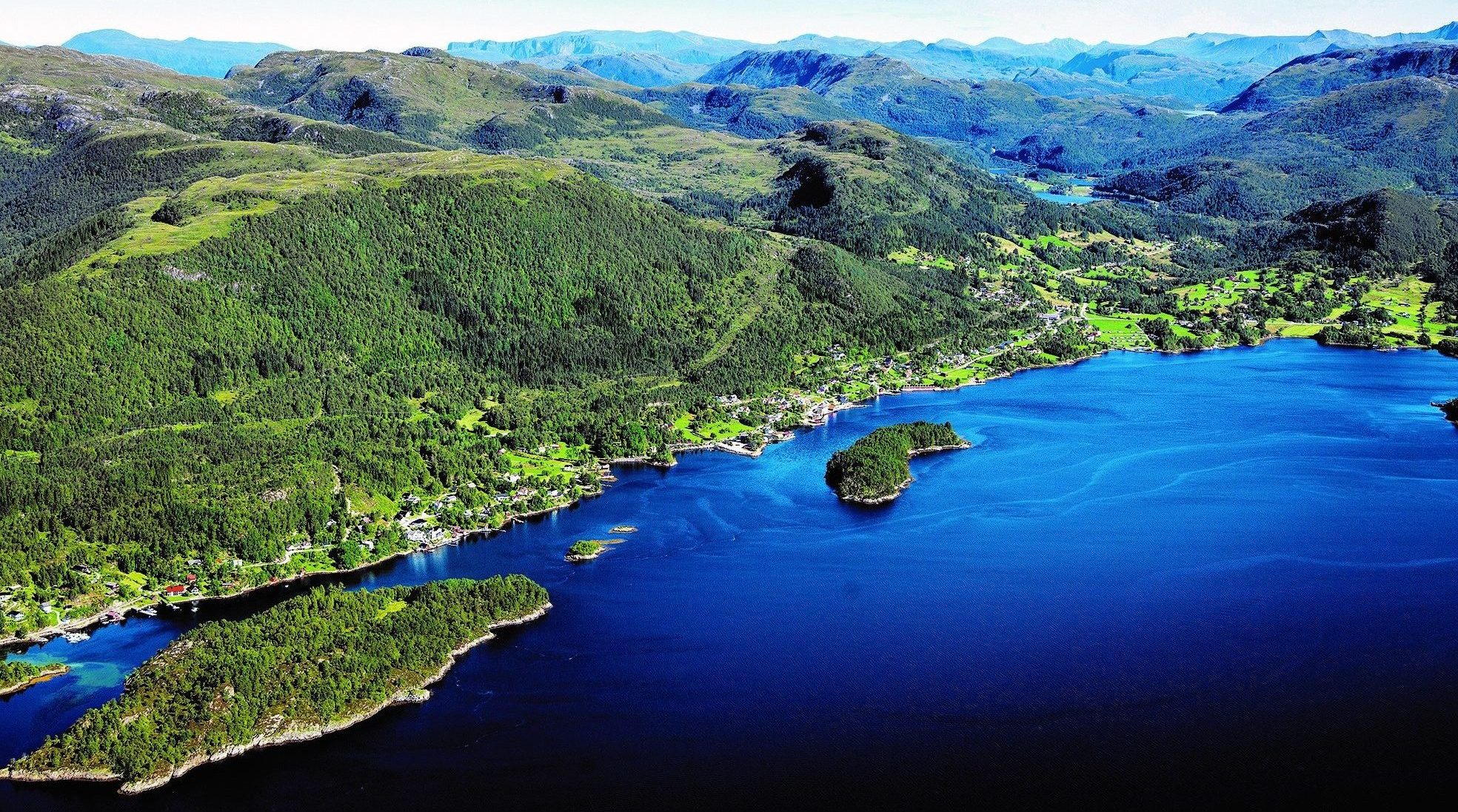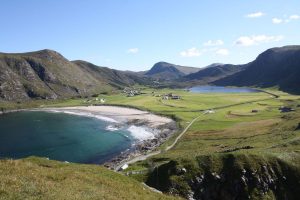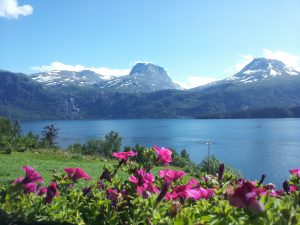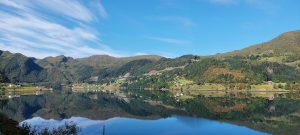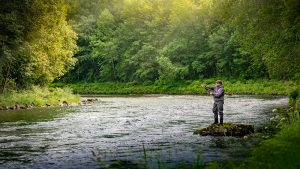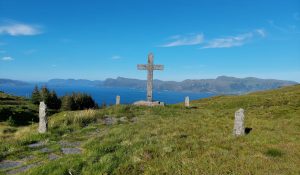There were routes through Rimstad over Berstadeidet to Selje and over Maurstadeidet to Vanylven
Here, the old trading town developed. By about the mid-1600s it was an established trading post with a “privileged innkeeper” (operating by royal warrant) and trading business.
The area to which the warrant applied is uncertain, but in the village history for Davik by Jakob Aaland it is written that the people of Hyen and Almklovdalen shall conduct their trade here.
A post office and steamship office opened in 1858, and there were regular mail routes across Berstadeidet, Maurstadeidet and over Maurstad to Lefdal.
Several circumstances at the turn of the century in 1900 led to the decline of these operations. The city was ravaged by fire in 1898 and again in 1910. The steamship office was moved inland, first to Hessevik and later to Nore, and here the new traffic hub and village centre developed.
Bryggja is today a village with about 600 inhabitants.
The number of farmers is decreasing, and today there are few left who still farm full time.
Some of the locals have jobs in the village: at the bakery, nursing home, school or in the shops, but steadily more people commute to densely populated areas nearby for work.
In this respect, the quay is still well located – despite the fact that cars have taken over for boat traffic – as the village is located at a junction between the outer Nordfjord and Sunnmøre. Several towns are just a short distance away: Måløy, Åheim, and Nordfjordeid.
Bryggja has a long line of qualities that make it a great place to live:
- Long shoreline with excellent opportunities for boating, fishing, and swimming
- Great terrain for hiking and skiing
- Beautiful nature
- Safe local environment for children and adolescents
- Stable jobs
- Public institutions such as a school, kindergarten, nursing home, post office
- Many voluntary clubs and organisations
- Sports ground, licensed shooting range, community house, lighted trail
- Culture and history, such as the old post road between Rimstad and Berstad and the old, vaulted bridge Maurstad Gamle Bru
Bryggja was also the hometown of the actor and fiddler Alfred Maurstad, and the youth association that was founded in 1894 has benefited from both music and theatre support in the wake of this. The marching band movement in the village has long traditions, dating all the way back to 1897.

